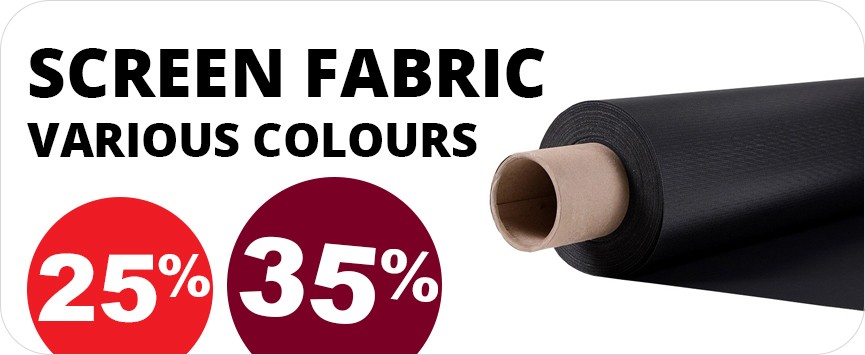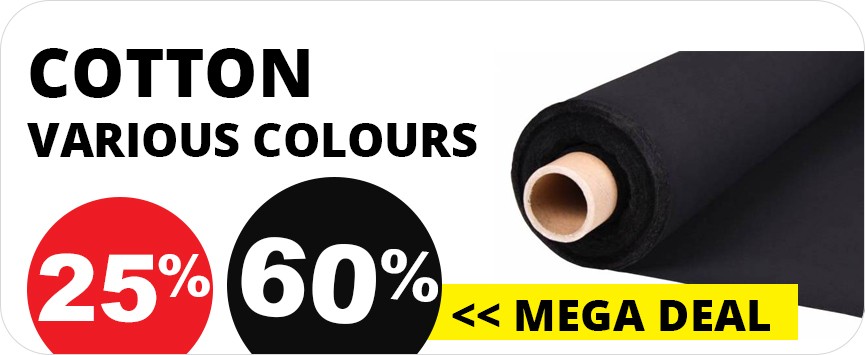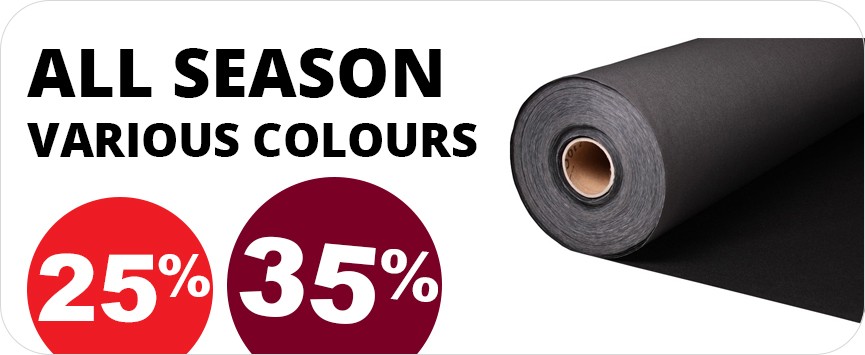Cotton tents - why is cotton better than polyester for a tent?
Let's start with the durability: a cotton tent from us will last 25 years or more.
For the last 20 years, the market has been flooded with cheap tents made of lightweight polyester. This lightweight polyester has quite a few shortcomings, including a lifespan (read: waterproofness) of about 2-3 years. These tents have therefore already led to many disappointing holidays. Below you can read about the positive characteristics of cotton, which apply to both our lightweight and heavy cotton tents.
Advantages and benefits of a cotton tent in brief
In a cotton tent, you will not get so hot when the sun is shining brightly, and: not so cold when it is chilly either. Compared to the polyester fabrics of cheap tents, cotton insulates very well. It "breathes" and it absorbs water. This also means that you will not have any problems with condensation in the tent.
Because of these insulating properties and the weight, cotton tents are 'quieter' when the wind is blowing.
Most importantly, the lifespan of a cotton tent is many times that of cheap polyester tents. Cotton is also more resistant to the effects of harmful UV radiation.
Further positive features of cotton tents
- As mentioned above, a cotton tent is more durable and sturdy than a tent made of lightweight synthetic material. These 'dry out', as it were, and this damage is irreversible. After about 20 years of usage(read: 60 weeks of camping), UV radiation will begin to break down the cotton fibres. You can compensate for this by re-impregnating the cotton.
- When cotton gets wet, the individual fibres expand, filling holes in the fabric. This means that the stitching or small perforations that have been made during stitching or through wear and tear become waterproof. When the fibres expand, the larger fabric shrinks, making the tent tighter, so that there is less rattling and the tent is more resistant to the wind, so that it stays in place.
- A cotton tent breathes. Because cotton has many small holes, which are naturally woven into the fabric, it can breathe better. This means less condensation.
- Cotton tents stay considerably cooler during the day and warmer at night. Cotton is a thicker fabric. It therefore keeps out the sun's heat for longer. When the temperature drops in the evening, the heat cannot escape as quickly, resulting in a warmer living environment inside the tent.
- Cotton tents are quieter because the fabric is thicker and softer. This means that you do not hear the annoying slapping or crackling noise that you hear and experience even in a moderate breeze in a polyester tent.
- A cotton tent is easier to repair. This can be done with transparent plasters as well as with cotton patch.
Are there any disadvantages to a cotton tent?
Yes and no. When the cotton tent is wet, the tent fabric is heavier. This means a disadvantage when packing: the tent is more voluminous and has to be dry again within 24 hours, otherwise you will get mould in the fabric.
On the other hand, if a cotton tent is just pitched on a campsite and has been wet by rain, a heavier deck immediately makes the tent more sturdy. And that is another advantage. The modern cotton tent cloth always remains breathable. Thanks to the special impregnation, the water droplets pearl off the tent during a rainstorm or morning dew. . These innovative improvements make cotton more practical for family camping, as it helps to reduce drying time. This can play a role, for example, if you are camping at a site that you have to leave at 10 o'clock in the morning.
Want more background information on cotton tents?
Click on this link and you will read everything about cotton as the ideal fabric for a long-term tent. By the way, this text can be translated into all languages with our translation tool at the very top of the page.
Always welcome.



